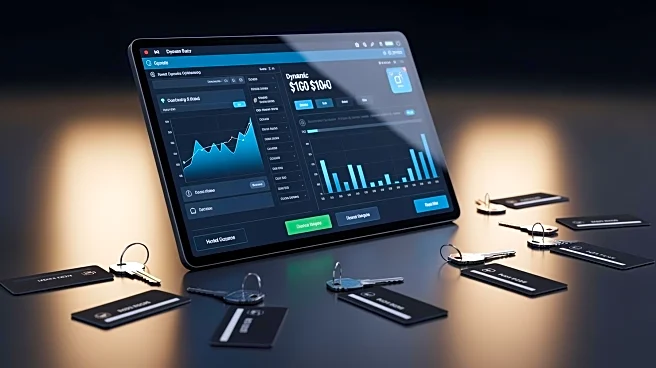What's Happening?
The hotel industry is transitioning from traditional intuition-based pricing models to sophisticated, data-driven revenue management systems. This shift is aimed at optimizing total profit rather than just focusing on occupancy rates. Major hotel brands
are investing in advanced technology platforms that integrate a wide range of data, including airline bookings and customer behavior, to refine their pricing strategies. This approach allows hotels to adjust prices dynamically based on market conditions, similar to how a baseball manager selects pitchers for specific situations. Michael Morton, a veteran in the industry, recalls the previous reliance on spreadsheets and gut instinct, which often led to missed revenue opportunities. The new pricing systems employ teams of algorithms to make precise adjustments, marking a significant departure from past practices.
Why It's Important?
The adoption of data-driven pricing models in the hotel industry represents a significant evolution in revenue management. By leveraging technology, hotels can better respond to market fluctuations and consumer demand, potentially increasing profitability. This shift is crucial for maintaining competitiveness in the $340 billion U.S. hotel industry, where maximizing revenue is essential for growth and sustainability. Larger hotel chains are leading the way, but smaller hotels may face challenges due to the costs and training required to implement these systems. The move towards algorithmic pricing could also influence other sectors, encouraging broader adoption of data-driven strategies in business operations.
What's Next?
As major hotel brands continue to invest in technology, smaller hotels may need to find ways to overcome barriers related to cost and training to remain competitive. The industry might see increased collaboration with tech companies to develop more accessible solutions for revenue management. Additionally, the integration of diverse data sources could lead to more personalized pricing strategies, enhancing customer satisfaction and loyalty. Stakeholders, including hotel owners and technology providers, will likely focus on refining these systems to ensure they deliver optimal results.
Beyond the Headlines
The shift to data-driven pricing models in the hotel industry could have broader implications for organizational culture and structure. As revenue management becomes a priority, hotels may need to adapt their internal processes and training programs to support these new systems. This evolution could also lead to ethical considerations regarding data privacy and the use of customer information in pricing decisions. Long-term, the industry might experience a cultural shift towards valuing analytical skills and technological proficiency.















